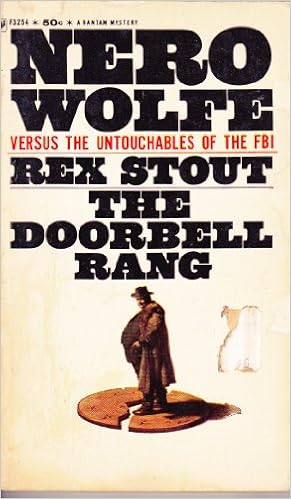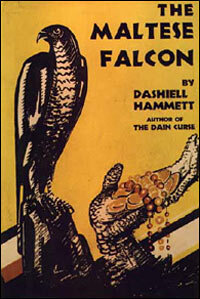Anne van Doorn is a regular reader and back blogger here at SleuthSayers. He's also an author (with a charming way with words) and a friend of mine. I'm pleased to share his guest column with you today. Welcome, Anne.
-- Barb Goffman
My American Project—How to Write Like an American
Avid readers of SleuthSayers may have seen my name appear in the comments section here. I came across this blog through Google and instantly liked how professional writers shared their experiences. It's an honest, entertaining, and informative blog—a tempting combination. Now I have also been invited to write an article too, which I consider a great honor.
My name is Anne van Doorn. It's one of my two pen names; the other is M.P.O. Books. I'm a professional writer from the Netherlands, where I earn a modest but sufficient income. In my spare time, I work on a book on 600 years of my family's history.
None other than Josh Pachter introduced me to an international readership. He translated from Dutch my story "The Poet Who Locked Himself In." It was published in Ellery Queen's Mystery Magazine's Sept/Oct 2019 issue. I feel very grateful to Josh and the staff at EQMM for giving me this opportunity. Editor Janet Hutchings even gave me the chance to write a guest post for her blog Something is Going to Happen.
In case you're starting to think I'm writing this post to BSP myself—no, I'm here to enlist your assistance, dear SleuthSayers.
I like a challenge. My introduction to an international audience made me wonder if I would be able to write an American detective novel. I'm sure I can—but to what level of performance? How convincing will it be? Your help is direly needed!
Dutch Writers Crossing Borders
Other writers from the Netherlands have tried this before—writing in English. Maarten Maartens (1858-1915), who lived the last years of his life in my hometown of Doorn, is said to be the first Dutchman to have written a detective novel for adults. It was titled The Black Box Murder (Remington & Co, London, 1889), and he wrote it in English. In fact, the novel has never been translated into Dutch. Maartens, who lived in England from 1864-1870, wrote almost exclusively in English. Regrettably, The Black Box Murder is his only detective novel.
Other glowing examples are Robert van Gulik (1910-1967), who is famed for his wonderful Judge Dee stories, set in ancient China, and Janwillem van de Wetering (1931-2008), noted for his characters Grijpstra and De Gier, two Amsterdam police detectives. By the way, Josh Pachter translated two short stories by Janwillem van de Wetering for EQMM. One of them, "There Goes Ravelaar!," was nominated for the Edgar Award for Best Short Story of 1986 by Mystery Writers of America.
It was also Josh Pachter who encouraged me to translate my short stories and gave me solid advice. Last year, I took on the challenge of translating "The Doctor Who Fell Into Sin" and submitted it to EQMM. I inked their contract in November. It was all the encouragement I needed. Apparently, my English is good enough—at least in short form.
The American Project
At the moment, my full-length so-called "American Project" is in the preliminary stages. I'm improving my understanding of the language and creating what I call my "palette."
I learned British English in school, so now I need to know how it differs from American English. I've made a list of idioms. I also study from the Blue Book of Grammar and Punctuation. Furthermore, I've created an extensive list of words I don't use and write down their meanings and synonyms to discover their connotations. This should allow me to use them. I also list police jargon, slang, abbreviations, and terms of abuse. As a Christian, I don't like expletives, so I'm selective in this regard.
And I'm making my palette. It's a document full of all kinds of expressions for motions and positions. Take for instance the way you move through a room. There are many variations for it. You can walk, run, stroll, tiptoe, lumber, and so on. Some of these words are new to me, so I need to write them down. While writing a novel, I can consult my palette document, choose the best option, adapt it to the situation, and use it.
And by positions, I mean variations like these:
"The statuette rested on a shelf."
"The statuette was displayed on a shelf."
The same applies to non-verbal communication—the way we express our emotions and thoughts. I'm talking about shrugs, frowns, blushes, looks, and so on. You probably know them all, but I have to write them down to choose the best option for a given situation. And, of course, I also need to know all the ways of speaking: saying, whispering, screaming, stammering, and all other variants.
Eventually, my palette will be a helpful tool.
Learn by Reading Others
I read a lot of American English. Besides a daily visit to SleuthSayers, I read a short story every day. To cater to my needs, I subscribed to EQMM. Recently, I purchased Black Cat Mystery Magazine #8, Sherlock Holmes Mystery Magazine #13, and Shanks on Crime by Robert Lopresti in ebook format. Crime novels by Lou Manfredo (Rizzo's War), Anthony Boucher (The Case of the Baker Street Irregulars), and Steven Torres (Precinct Puerto Rico) are at the top of my TBR pile. I'm sure all these books will help me in one way or another.
Even then, I'm well aware that I will make mistakes. I'm not a flawless writer. But thank God there are copy editors who can save me from my follies! Dis article, for a sample, was copi-editit by Barb Goffman—accept vor dis sentins. (Yeah, copy editing is hard labor!) I hope she's willing to help me on my American Project too, but I'm not sure she can, as this brave lady is learning to say no.
Now, my dear SleuthSayers, I turn to you. Over the years, this blog has published countless articles on the use of language, grammar, punctuation, and related topics. You've spotted my gravest mistakes in my comments on your posts. What particular article would you recommend to get me started?



































